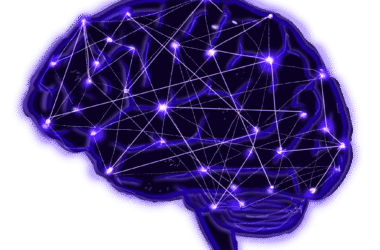From uncovering the genes that cause birth defects to serving as Chair of the Board of Directors of the Canadian Black Scientists Network, Professor Loydie Jerome-Majewska has been a catalyst for change across fields. She serves as a professor in McGill’s Department of Pediatrics and senior scientist at the Research[Read More…]
Tag: scitech
From fauna to flora: The benefits of switching to plant-based protein
Vegetarianism has been on the rise for years; in 2024, 2.3 million Canadians self-identified as vegetarian, a 176 per cent increase from 2015. Several factors contribute to the marked rise, including vegetarianism’s perceived benefits for both individual consumers and the environment. But how beneficial is it really? McGill Professor of[Read More…]
Professor Myrna Lashley sheds light on the importance of studying Black Canadian youth’s mental health
Black Canadians, on average, experience disproportionately poor health outcomes throughout their lives. While genetics may contribute to many chronic illnesses and mental health challenges, social and environmental determinants such as limited access to health care and anti-Black racism drive much of this disparity. This discrepancy is compounded by the legacy[Read More…]
Take the Tribune’s Science and Technology quiz
In 1989, Alan Emtage, a graduate and system administrator at McGill, created the first Internet search engine, which present-day search engines still rely on. What did he call his search engine? a) WebCrawlerb) Yahooc) Archied) ChatGPT As of Fall 2025, which faculty had the largest number of students enrolled? a)[Read More…]
The link between mental health and breathlessness
Have you ever trudged through the snow up rue University, about to write a final exam that will make or break your grade? By the time you reach the top of that hill, you might be feeling more out of breath than usual. A recent study involving Dennis Jensen, a[Read More…]
Goat and sheep milk allergies point to underlying cow’s milk allergy…Most of the time
Despite the meteoric rise of plant-based milk’s popularity over the past few years, cow’s milk continues to dominate the global milk market. It is an excellent source of vital minerals, vitamins, and proteins, and is often recommended for young children—that is, assuming they are not allergic. Even with all of[Read More…]
Yes, your city moves differently on special event days
As major cities develop increasing dependence on shared micromobility—namely, e-scooters and e-bikes—urban planners face the challenge of understanding the fluctuating demand for these modes of transport. While daily travel patterns remain relatively predictable, special events such as festivals, parades, and protests regularly disrupt urban mobility. These events can attract large[Read More…]
Plurilingual Lab restarts Grad Talk series with a discussion on multilingual classrooms
McGill’s Plurilingual Lab resumed its Grad Talks series on Jan. 15 as part of an initiative to highlight graduate students’ research on language education while also allowing them to receive constructive feedback from other researchers. The first talk of the year was led by Tiffany Tam, a University of Toronto[Read More…]
Fact or Fiction: Can artificial intelligence use reduce users’ cognitive skills over time?
Artificial Intelligence (AI) tools now shape how many students tackle tasks such as essay writing, problem-solving, and even brainstorming ideas. Across online platforms, users claim that their reliance on AI has compromised their vocabulary, writing abilities, and creativity, raising concerns about a weakening of cognitive skills overall. However, from a[Read More…]
Refuting students’ false mathematical arguments with counterexamples
When today’s elementary school students learn about fractions, they are sometimes asked to explain how they reason, for example, that one fraction is greater than another. By constructing their own arguments to explain how they came to a particular mathematical conclusion, they take on more agency in their own learning.[Read More…]















